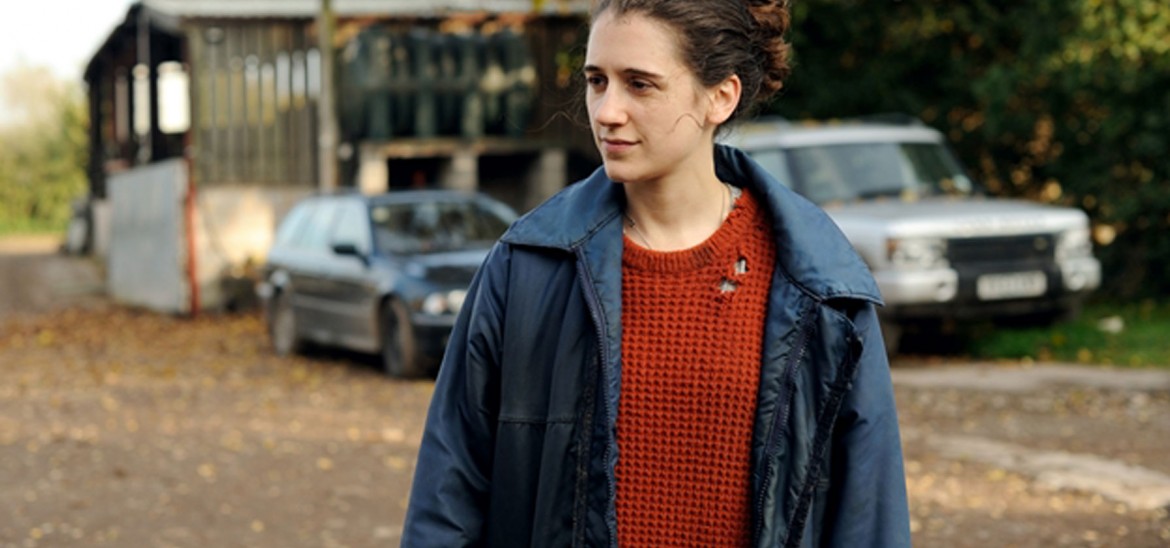Into Film Clubs
Find out everything you need to know about starting an Into Film Club.



The Levelling is the brilliant debut feature from British director Hope Dickson Leach. The film is set in the aftermath of a real series of devastating floods that hit the West Country in 2014. Clover (played by Game of Thrones' Ellie Kendrick) is a veterinary student returning home for the first time in years, following the sudden death of her brother Harry. She finds the farmhouse abandoned, the land in a state of disrepair, and the family finances in a dire situation - all a consequence of the floods and Harry's mismanagement of the farm. Relations with her father, Aubrey difficult since the death of her mother a few years prior are also increasingly strained. Aubrey does not want to talk about Harry's death, or face up to the family's economic situation, meaning Clover has to take control of the farm and its livestock, as well as gradually try to piece together what really happened to Harry.
The Levelling is notable for focusing on farming - a culture that seldom appears honestly on film. Farming can be misunderstood by those who are not aware of the complexities involved in making decisions around livestock, or that confuse owning large areas of land with significant wealth. Everyday issues - such as lowering the cost of milk in supermarkets - hugely impacts the finances of a farm, forcing them to diversify. The 2014 Somerset floods dramatically affected the community: people were forced to leave their homes, their farms, and their businesses. It was against this backdrop that Dickson Leach wanted to tell her story, drawing attention to the day-to-day struggles and environmental events in these communities, but also broader rural issues around isolation, communication, and neglect. These themes inform and magnify one another as the narrative plays out.
Filming on a working farm meant that the filmmakers had to deal with lots of animals on set. As Hope and Ellie told us when they visited Into Film HQ (watch the interview below), a particular challenge was working with large numbers of cows. For one thing: cows are not cooperative to filmmakers, and the animals spent a great deal of time staring directly down the lens of the camera! A crucial scene involving a dead cow also presented difficulties. The carcass wasn't real, but the living animals became increasingly fascinated by the fake corpse. This became such an issue that the unit manager had to climb into the fake cow when cameras were about to start rolling to scare the others off!
It was also important that the actors establish a good rapport with the animals, so that audiences would believe them as working farmers. The crew worked closely with real farmers, to ensure the animals' wellbeing and make sure they became used to the unusual environment of a film set. The lead actors also spent time during rehearsals learning to milk and handle livestock, both adding authenticity to their performances and helping put the animals at ease.
The film does not shy away from difficult discussions around animal welfare. Whilst some sequences are upsetting, involving burning carcasses and the culling of new born creatures, the ethical and economic arguments for these are clearly laid out and no animals were harmed during filming.
The farmhouse - beset by structural damage and standing empty - symbolises the devastation wrought upon the family, as well as being a space in which remnants of the past continue to exist. The farmhouse houses objects from the final hours of Harry's life, and letters from Clover's past, outlining her unhappy time at boarding school, as the divisions with her father became apparent. The theme of neglect is present throughout, in terms of both the farm falling into disarray, but equally importantly in how the characters have neglected their relationships with one another, allowing them to gradually deteriorate.
Rural locations often bring with them a sense of isolation. Although we see little of Harry himself on screen, the film deals bravely and unflinchingly with mental illness amongst young people. Harry was a young man in a rural community, reluctant to talk about his feelings with other people, and also working a job that required him to spend a tremendous amount of time alone. The circumstances around his death initially seem inconceivable - after all, he had been hosting a big party for friends the very evening of his passing.
For her part, Clover is looking for somebody to blame, and initially claims she had no responsibility because she "wasn't even there". A major theme of the film is communication, or the lack of it, amongst families. Previously close to her brother, Clover and Harry both neglected their relationship. The film highlights the pain that we can inflict on one another through our absence, or by not talking. It was through not communicating with one another that Clover and Aubrey became detached, ultimately driving Clover away, and also leaving them incapable of being truly supportive when they are needed the most.
Seemingly very different people, Aubrey and Clover are more alike than either would care to admit: both awkward communicators who mask what they're truly thinking from those around them. However, the film is not judgmental or overly critical. Gradually, Aubrey and Clover begin to reconnect, and Dickson Leach is more interested in highlighting universal issues around communication than she is inflicting harsh moral pronouncements on her characters.
Film is a powerful medium to explore issues such as these. As Ellie told us, it is a way for us to empathise, and see the world through other people's eyes, experiencing difficult subjects within the safe space of a cinema, a film club or a living room. Doing so allows us to draw parallels with our own lives and gain understanding. The Levelling informs and educates us about the challenges of modern farming, and the economic hardship facing many in such communities. It also uses its universal themes of neglect and the absence of communication to raise wider issues around wellbeing that relate to us all.
Viewing 4 of 4 related items.

Get in touch with your article ideas for the News and Views section.